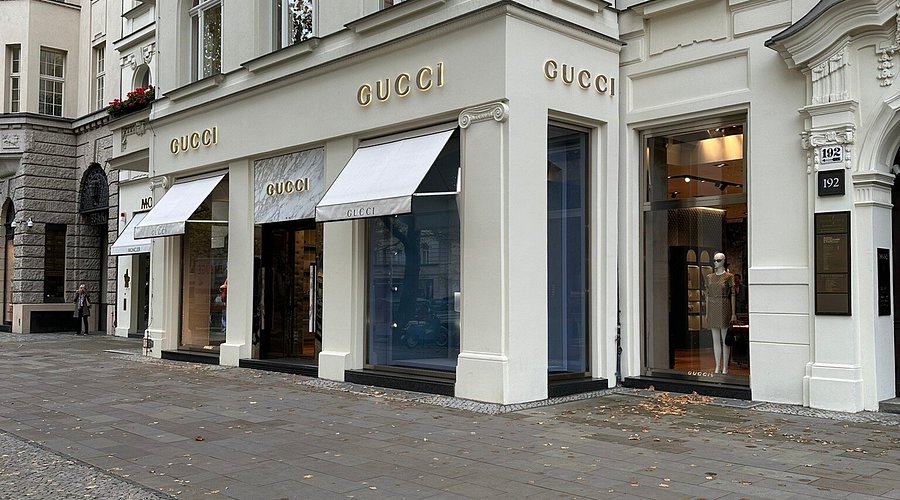Wealthy Families Turn to AI Curated Legacies to Preserve Generational Influence
By
John Carter
Last updated:
September 22, 2025
First Published:
September 22, 2025

Photo: CNBC
For centuries, wealthy families have relied on carefully maintained estates, portraits, and memoirs to carry their influence across generations. In today’s digital age, however, such traditional methods are being overshadowed by artificial intelligence. The wealthy are now commissioning AI systems to curate, preserve, and even expand their legacies, ensuring that their values and power remain alive far beyond their lifetimes.
Beyond simple record keeping
Unlike photo albums or family archives that gather dust in private libraries, AI curated legacies are dynamic. They draw from personal histories, correspondence, financial decisions, and cultural achievements to build a living archive that can interact with future generations. Descendants are not merely reading about their ancestors but are able to converse with intelligent systems that speak in their voices and reflect their philosophies.
Technology as a guardian of memory
Advanced AI models are being trained on vast databases of a family’s documents, speeches, and recorded conversations. This allows them to replicate not only the knowledge of their subjects but also their mannerisms, tone, and decision making patterns. Families see these digital entities as guardians of memory who can advise, narrate, and inspire long after the original voices have fallen silent.
The appeal of immortality
The wealthy have always been drawn to the idea of leaving a mark that lasts. While estates and foundations endure, they remain static symbols. AI curated legacies offer something closer to immortality. A patriarch who once guided a business empire may continue to advise successors through his digital counterpart, offering opinions on investments or reminding heirs of family principles. This creates a continuity of influence that transcends mortality.
Exclusive family archives
Private legacy chambers are now being designed in luxury estates. These are immersive rooms where descendants can step into environments filled with interactive holograms, AI driven conversations, and multimedia archives curated over decades. Families are turning history into an experience rather than a record. To walk into such a chamber is to feel the presence of ancestors in real time.
The economic ecosystem of legacy
An entire industry is emerging around the creation of AI curated legacies. Tech companies, historians, and data specialists are collaborating with wealthy families to design bespoke systems. The costs of such projects are staggering, often requiring teams of experts for years. Yet the wealthy view them not as expenses but as investments in generational continuity and prestige.
Concerns about authenticity
The rise of digital legacies has not escaped skepticism. Critics question whether AI reconstructions dilute the authenticity of human memory. Can an algorithm truly represent the soul of an individual or is it merely an imitation? Families counter these doubts by emphasizing that influence itself need not be authentic in the traditional sense. What matters is that their voice continues to shape the future.
The shift in family dynamics
AI legacies are also reshaping how families perceive heritage. Younger generations are engaging with their ancestors not through faded photographs but through interactive dialogues. This changes the relationship between past and present, making legacy less about reverence and more about active conversation. It is no longer history told from a distance but a form of mentorship across time.
Power preserved through memory
Wealth has always relied on continuity. Dynasties rise not just because of money but because of the knowledge and culture passed down through generations. By turning to AI, wealthy families ensure that their influence is preserved with precision, making it difficult for external forces to erase or reinterpret their story. Legacy becomes fortified by technology in ways that previous generations could never imagine.
The horizon of digital ancestry
Looking forward, AI curated legacies may evolve into entire digital family lineages where generations interact across centuries through interconnected systems. For the wealthy, this is more than novelty. It is a form of sovereignty over time itself. As technology advances, their voices will continue to echo, guiding heirs and shaping societies long after their physical presence has vanished.
Subscribe to unlock premium content
Sed at tellus, pharetra lacus, aenean risus non nisl ultricies commodo diam aliquet arcu enim eu leo porttitor habitasse adipiscing porttitor varius ultricies facilisis viverra lacus neque.
A comprehensive guide on Agile development

10 Productivity tools that are worth checking out

Top 7 Must have management tools for productivity

A comprehensive guide on Agile development

10 Productivity tools that are worth checking out

A comprehensive guide on Agile development








.png)
